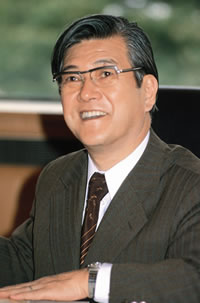Umesao Tadao: An Explorer For the Future

Umesao Tadao was the founding Director-General of the National Museum of Ethnology. His interests transcended disciplinary boundaries, and he always presented his new ideas in clear and simple language. This exhibition follows in his footsteps and renews our appreciation of his foresight and ability to implement his insights. To showcase the innovation that Umesao’s work always exemplified, in the Japanese title of the exhibition, his name is written in katakana, the Japanese syllabary used for new and foreign terms.
Here, for the first time, visitors will see the cards and memos Umesao used in writing Chiteki seisan no gijutsu (The Art of Intellectual Production), and the notes, sketches, and journals he kept during his field work in Japan and abroad. The 22 volumes of his complete works will also be on display, allowing visitors to explore the results to which his fieldwork gave birth.
Today’s Japan confronts many problems that Japan alone will not be able to solve. It is now more essential than ever that we cultivate an intense curiosity, like Umesao’s, about other parts of the world.
Here we follow in the footsteps of an intellectual pioneer, whose insatiable curiosity, travel to all parts of the world, brilliant visions for the future and theory of civilizations made him a model from which we, living as we do in a time of confusion, can find direction. We invite you to encounter for yourself the deep significance of Umesao’s world.

Director of Minpaku in 1980
Born in Kyoto City in 1920, Umesao was an ethnologist and a scholar of comparative civilizations. He graduated from the science faculty of Kyoto Teikoku University (now Kyoto University) with a doctorate of science. At the university, Umesao mainly specialized in zoology, but his interest turned to ethnology as a result of conducting academic research in Inner Mongolia, and he began enthusiastically undertaking fieldwork in Afghanistan, Southeast Asia, East Africa, Europe and elsewhere. In his 1957 work, An Ecological View of History: Japanese Civilization in the World Context, he proposed the theory that Japanese civilization and Western civilization evolved in parallel, at more or less the same pace.
From 1949 to 1965, Umesao worked as an assistant professor at the Faculty of Polytechnics at Osaka City University. From 1965 to 1969 he served as an assistant professor at Kyoto University's Institute for Research in Humanities, and then from 1969 to 1974 he served as a professor there. Umesao was instrumental in founding the National Museum of Ethnology and served as its first Director-General from 1974 to 1993. After retiring from that position, he served as a special advisor for the museum and was designated professor emeritus. He was also named professor emeritus at the Graduate University for Advanced Studies and Kyoto University. He was awarded the Asahi Award in 1988 and was made a Person of Cultural Merit in 1991. He was the recipient of the Order of Culture in 1994 and the Grand Cordon of the Order of the Sacred Treasure in 1999. Umesao died in 2010.





